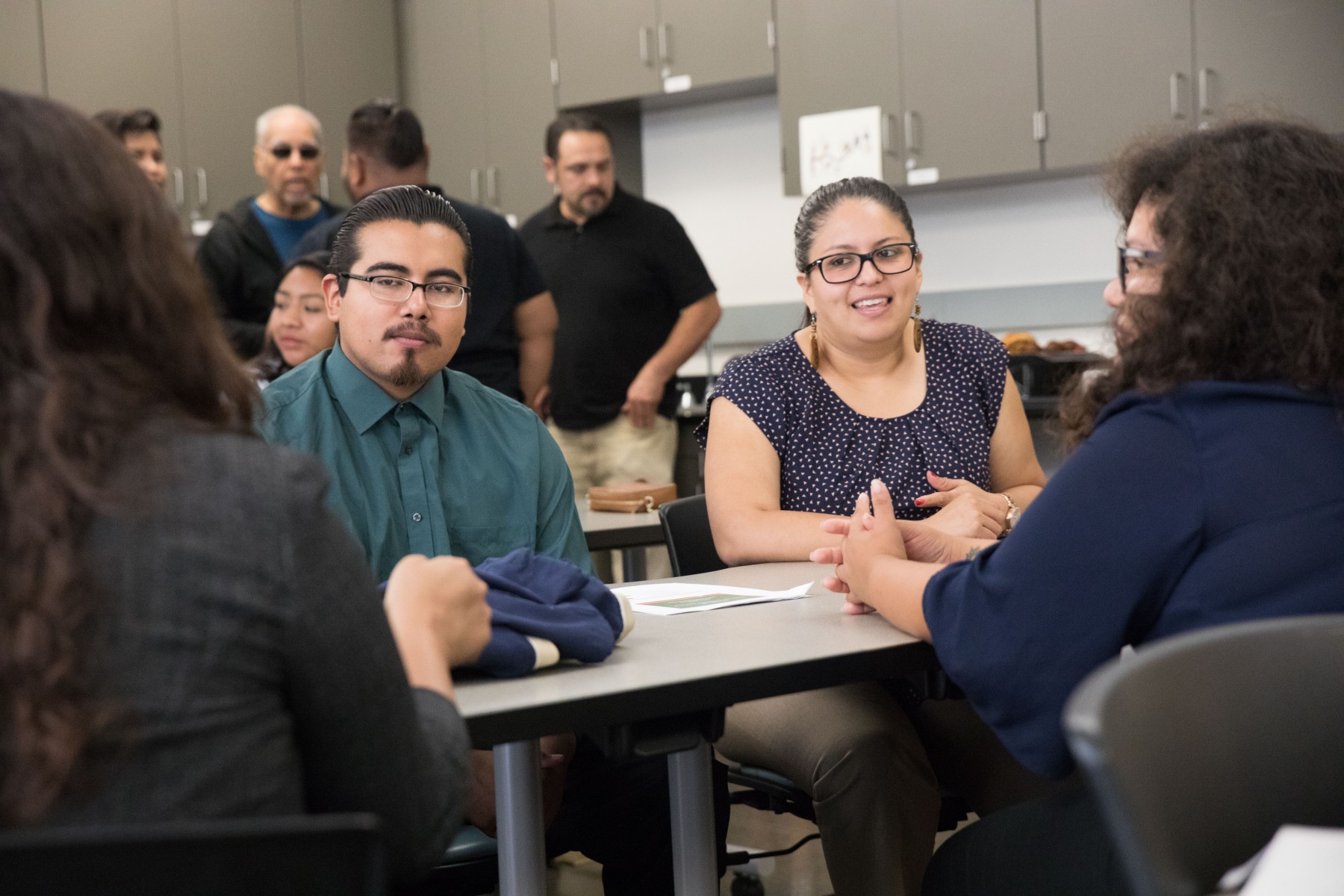Creating a Culture of Success for Disadvantaged Youth
By David Ogul

It’s about providing an opportunity to all.
That’s the message from backers of “Homie UP: Youth Empowerment Program,” a new, four-year, $1.7 million, grant-funded initiative through the Cal State San Marcos-based National Latino Research Center, which will provide at-risk high school students the mentoring and educational support that can keep them on track toward earning a college degree. The effort gets underway this fall with an incoming cohort of 50 freshmen who are in danger of being expelled from school.
“A lot of these kids come from families with a lack of formal education, a lack of knowledge about how to go about getting into college, a lack of role models, and a lack of resources,” said Dr. Arcela Nuñez-Alvárez, the National Latino Research Center’s research director and Homie Up program manager. “Our goal is to provide them the tools they need to succeed.”
The National Latino Research Center works with stakeholders from local government and nonprofits to improve education, civic involvement, cultural competency, community development and more. Agencies the National Latino Research Center is partnering with on Homie Up: Youth Empowerment include the Vista and San Marcos Unified school districts, the Mano a Mano Foundation, The San Diego County Sheriff’s Department, the University Police Department, and Survivors of Torture, International. The Mano a Mano Foundation will provide access to youth counseling and facilitate workshops and presentations on improving communication. Law enforcement will focus on building trust and community-oriented policing that integrates culturally based, problem-solving approaches. Survivors of Torture, International, will reach out to youth and parents who have been victims of trauma resulting from violence. And the Vista and San Marcos school districts will target students to take part in the program.
Restorative justice practices, which are becoming more mainstream as schools look for more creative ways to engage students in correct behavior, will be used in place of automatic expulsions or suspensions when dealing with some offenses.
“The focus will be on students who are at risk and who oftentimes don’t see college as an opportunity,” said Cipriano Vargas, who sits on the Vista Unified School District’s Board of Trustees and who is a CSUSM graduate. “Too many are living in impoverished communities or are being exposed to a gang lifestyle, and it’s crucial that we help open their eyes so they can see the possibilities that are out there.”
Although both are operated through the National Latino Research Center, Homie UP: Youth Empowerment Program, is not related to the similarly named Homie UP, which offers American history from a Chicano/Latino perspective free of charge to incarcerated individuals.
“This is a project that will help increase the number of Latino youth who are in the academic pipeline, a pipeline that will lead them to college and a rewarding career,” said Dr. Xuan Santos, an assistant professor of sociology at CSUSM who is working with Nuñez-Alvárez.
Most Homie UP: Youth Empowerment Program activities will take place daily after school at Centro Universidad Popular, which sits a few blocks from Vista High School, and at Twin Oaks High School in San Marcos. Students taking part in the program will be tracked over their four years in high school to measure Homie Up’s impact on their academic progress, developing career goals, and changes in risk behavior.
“We are really looking forward to bringing this added support for our youth,” said Nuñez-Alvárez. “We’re finding that a lot of Latinos are still lacking in college preparation and as a result are ending up in alternative schools or continuation schools or the juvenile justice system.”
Added Vargas: “This program is but another example of Cal State San Marcos’ focus on strong community partnerships.”

